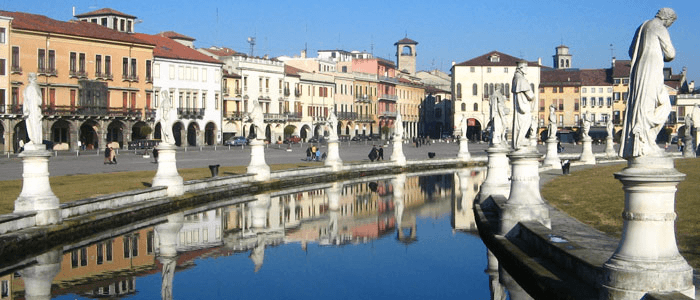The city of Padua has been presented as the 14th century Capital thanks to works of arts like the Arena Chapel, a masterpiece of Italian and European painting of the period, which is actually the most complete fresco cycle by Giotto.
The city offers a lot of historical and artistic attractions: the prestigious University of Padua (famous for its faculty of Medicine, Psychology and Law) existing from 1222, the oldest university botanical garden in the world (1545), the Palazzo della Ragione and the Basilica of Sant’Antonio.
You can experience the city of Padua by bycicle throught a variety of services and activities. The culural events and social life take place mainly in the historical heart of the city, at the cafes that are framed by Piazza dei Signori, Piazza delle Erbe and Piazza della Frutta; in the last plazas you will find a well-stocked vegetable market, among the largest in Italy, which takes place every week on Saturday.
Padua has the peculiarity to be the city of withouts:
- a saint without a name, because St. Anthony is commonly called The Saint,
- a café without doors, because the monumental and historic Pedrocchi Café was open twenty four hours a day until 1916;
- a field without grass, because Prato della Valle was only a marshy area until the end of 1700. Today it is a beautiful square, the largest of its kind in Europe, with an elliptical central island surrounded by statues of famous people linked to Padua.
Useful links:
